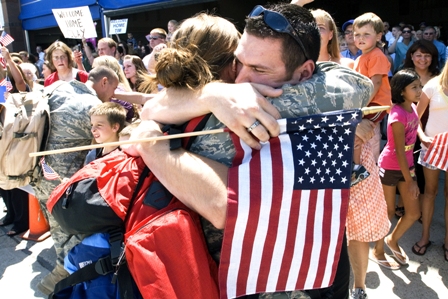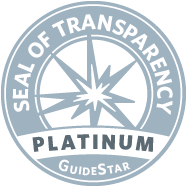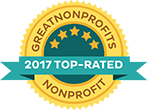1) The Land Stewardship Project Farm Beginnings® Program (Southeast MN, Western WI, & NE Iowa or Western MN, Southeast SD, Northwestern IA)
2) Farm Beginnings® Programs in Other Regions
(Greenview, IL; Evanston, IL; Caledonia, IL; Two Harbors, MN; Auburn,
NE; Lincoln, NE; Ghent, NY; Medina, ND; & Brookings, SD)
3) The Michael Fields Agricultural Institute (East Troy, WI)
4) The Michigan State University Student Organic Farm Certificate Program (E. Lansing, MI)
5) The Michigan Land Use Institute’s Get Farming! Programs (Traverse City, MI)
6) Wisconsin School for Beginning Dairy and Livestock Farmers (Madison, WI & Satellite Locations)
7) Foundation Farm School (Eureka Springs, Arkansas)
9) Penn State Cooperative Extension Beginning Farmer School (Online)
10) UC Santa Cruz Center for Agroecology & Sustainable Food Systems Apprenticeship in Ecological Horticulture
________________________________________________________________
1) The Land Stewardship Project’s Farm Beginnings Program includes:
* 36 hours of seminar time, much of it with established farmers.
* 12 on-farm education events, including farm tours and skills sessions on working farms.
* Course books, binders and other materials.
* Connection to a network of established sustainable farmers interested in helping you succeed.
* A one-year Land Stewardship Project membership.
* Application for a livestock loan for those successfully completing Farm Beginnings.
“The cost for the 10 month course is
$1,500. The $1,500 covers the farmer presenter’s time, the materials,
on-farm education and a complimentary year long membership in the Land
Stewardship Project. There are a limited amount of scholarship dollars
available to help if there is financial need.
Through their On-Farm Education
“participants spend the spring and summer attending on-farm education
sessions. They have the opportunity to tour a wide variety of farms
that encompass many different systems of farming.
Tours are arranged to visit a variety of farms during the course…
April- August. The purpose is to see many different operations, look at
the systems each farm family has implemented, ask questions about
production methods, farming techniques and be exposed to creative
problem solving. The tours will consist of a tour of the farm, an
overview from the farmers and a time for discussion and questions.
Their Skills Sessions were piloted
in 2005-2006 and often accompanied a farm tour with a focus on specific
hands-on learning. Some examples from the 2005-2006 year were preparing
winter CSA shares, weeding techniques on an organic vegetable farms,
fence building, calf care, prepping for and attending farmers markets.
Driftless Region (SE Minn., Western WI, NE Iowa)
• Karen Stettler (general information)
E-mail: stettler@landstewardshipproject.org
• Parker Forsell (Farm Beginnings Collaborative)
E-mail: parker@landstewardshipproject.org
• Karen Benson (class registration)
E-mail: lspse@landstewardshipproject.org
Website: www.farmbeginnings.org
Phone: 507-523-3366
Address: P.O. Box 130, Lewiston, MN 55952
Prairie Region (Western Minn., SE S. Dak., NW Iowa)
• Amy Bacigalupo (general information)
E-mail: amyb@landstewardshipproject.org
• Nick Olson (class information)
E-mail: nicko@landstewardshipproject.org
Phone: 320-269-2105
Address: 301 State Rd., Suite 2, Montevideo, MN 56265
2) Farm Beginnings Programs in Other Regions
Central Illinois Farm Beginnings
Deborah Cavanaugh-Grant
University of Illinois at Urbana-Champaign/University of Illinois Extension
Small Farm and Sustainable Agriculture Extension Specialist/ SARE Coordinator
P.O. Box 410
Greenview, IL 62642
Phone: 217-968-5512
Cell: 217-341-0398
E-mail: cvnghgrn@illinois.edu
Website: http://central.illinoisfarmbeginnings.org
Illinois: The Land Connection
Terra Brockman (through the end of Aug. 2009)/ Kathy McGroarty-Torres
1227 Dodge Ave., Suite 200
Evanston, IL 60202
Phone: 847-570-0701
Fax: 847-570-0711
E-mail: terra@thelandconnection.org
E-mail: kathy@thelandconnection.org
Website: www.thelandconnection.org
Illinois: Stateline Farm Beginnings
Tom Spaulding/Sheri Doyel/Tracey Hall
Angelic Organics Learning Center
1547 Rockton Rd
Caledonia IL, 61011
Phone: 815-389-8455
E-mail: tom@learngrowconnect.org
E-mail: sheri@learngrowconnect.org
E-mail: tracey@learngrowconnect.org
Website: www.learngrowconnect.org
Lake Superior-NW Wisconsin/NE Minnesota
Cree Bradley
Lake Superior Sustainable Farming Association
2995 Hwy 3
Two Harbors, MN 55616
Phone: 218-834-0846
E-mail: cree@lakesuperiorfarming.org
Website: www.lakesuperiorfarming.org
Nebraska
Gary Lesoing
Nemaha County Extension
Nebraska SARE Coordinator
1842 N. Street-Courthouse
Auburn, NE 68305-2395
Phone: 402-274-4755
E-mail: glesoing2@unl.edu
William Powers
Nebraska Sustainable Agriculture Society
Executive Director
1708 North 32nd Street
Lincoln, NE 68503
Phone: 402-525-7794
E-mail: healthyfarms@gmail.com
Website: www.nebsusag.org
New York
Rachel Schneider
Educational Programs Director
Hawthorne Valley Farm
327 Route 21C
Ghent, NY 12075
Phone: 518-672-7500, ext. 105
E-mail: rachel@hawthornevalleyfarm.org
Website: www.hawthornevalleyfarm.org
North Dakota
Britt Jacobson/Karri Stroh
FARRMS
301 5th Ave. SE
Medina, ND 58467
Phone: 701-486-3569
Fax: 701-486-3580
E-mail: info@farrms.org
Website: www.farrms.org
South Dakota
Frank James/ Heidi Kolbeck-Urlacher
Dakota Rural Action
Mailing Address:
PO Box 549
Brookings, SD 57006
Street Address: 910 4th St.
Old Sanctuary Building, Suite A
Brookings, SD 57006
Phone: 605-697-5204
Fax: 605-697-6230
E-mail: heidiku@dakotarural.org
E-mail: fejames@dakotarural.org
Website: www.dakotarural.org
3) The Michael Fields Agricultural Institute offers training through:
- Their Garden Student Foundation Year,
“an exploration into biodynamic and organic agriculture through
theoretical and experiential building on core competencies and skills
and agro-ecological literacy. The Garden Student Foundation Year
prepares students for the challenges of farming, broadens awareness
into issues of sustainable agriculture today and penetrates the human
spirit with enlivened knowledge.
This
four-term immersion program offers a foundation into agricultural study
with the flexibility that can be balanced with personal schedules. The
Garden Student Foundation Year begins February 3rd with the Pre-Season
Term that emphasizes theoretical study.
The
Spring, Summer and Fall Terms are each ten-weeks long and are
production oriented. The four terms in the Garden Student Foundation
Year flow together to create a comprehensive agricultural literacy.
Students have the option of taking one full term of choice or
completing the whole 9-month Garden Student Foundation Year.”
- Their Stella Gardens Farm Management Apprenticeship
which “focuses on the individual’s goals to become a farmer. Two
candidates are selected each year from the Garden Student Foundation
Year to manage Stella Gardens, outdoor classroom for the Farm &
Food Education Program – Garden Student Foundation Year, Whole Farm
Workshops and Guided Educational Tours.
The
apprenticeship opportunities include free access to cooperating farm
tours, Whole Farm Workshops and select conferences as well as
individualized mentoring from Janet Gamble, Farm & Food Director.
Program components Include
* Sustainable agriculture business plan development, implementation and evaluation
* Market development
* Provide hands-on, practical experience in managing a small-scale farm enterprise
* Identifying and learning core competencies and skills and time management
* Opportunity to develop educational components with Garden Student
foundation Year students and visiting groups, written and oral project
presentation, farm-tours by visiting public
* Opportunity to attend any MFAI educational workshops, lectures, and special events”- Their Whole Farm Workshops
which “are designed to serve as entry points and pathways at every
phase of an agrarian life – newly emerging farmers, farmers in
transition and even those who have been farming for many years all
benefit from courses.”
They
“are also creating opportunities for consumers to enter into farm life
through cooking, gardening and farm tours. At MFAI, you will engage in
interactive workshops and on-site field trainings presented by
experienced farmers offering practical, immediate solutions.”
4) The Michigan
State University Organic Farmer Training Program is a 9 month intensive
training program in year round organic farming focusing on diversified
production of vegetables, flowers, fruits and herbs for local markets.
The program emphasizes student learning in hands on farm management and
decision making as well as development of necessary farming skills and
knowledge.
Students engage in the management of the 10 acre certified
organic farm including its 16,000 sqft of passive solar greenhouse
space and the SOF production for its primary markets including a 48week
CSA, 6 month on campus farm stand, and sales to campus dinning
services. Students also develop competencies in farm skills through
skills trainings and by engaging in the day to day work and operation
of the farm. Hands-on-training is combined with workshops, lectures,
readings, and assignments that build participant?s knowledge and
understanding of organic farming principles and practices. Click here
to read more: http://www.msuorganicfarm.org/certificateprogram.htm
5) Get Farming!
is a project of the Michigan Land Use Institute in Traverse City. Their
focus is on beginning farmers and prospective growers as well as
established farmers interested in new production or marketing
strategies. They are hosting workshops on a variety of subjects,
including:
- Women in Agriculture
- Community Supported Agriculture Mini-school
- Hoophouses for Season Extension and Year Round Growing
- Whole Farm Planning
- Renewable Energy
- Cranberry Production
- Food Safety and GAP
- Organic Grape Production
- Others to be announced
- Get Farming’s
Entrepreneur Series will offers eight classes covering farm business
and production issues like market research, legal concerns, soils,
pests and financial planning. The Entrepreneur Series begins in March,
2010 in Traverse City.
6) The The Wisconsin School for Beginning Dairy and Livestock Farmers
The
Wisconsin School for Beginning Dairy and Livestock Farmers can give you
the edge you need to succeed in the pasture-based dairy and livestock
industries. It is the only program of its kind in the nation, and your
best resource for an education in pasture-based dairy and livestock
farming.
 The school has been designed to provide the opportunity for motivated
individuals to educate themselves about pasture-based dairy and
livestock farming. We offer our specialized training through
traditional classroom activities, hands-on internships, and farm tours
of pasture-based farms managed by successful graduates and mentors. We
strongly emphasize the business and financial planning knowledge
required to run a successful farm business. Classroom instruction at
the school runs from the middle of November through the end of March undefined
and our students typically participate in internships from April
through July, though those dates are flexible.
The school has been designed to provide the opportunity for motivated
individuals to educate themselves about pasture-based dairy and
livestock farming. We offer our specialized training through
traditional classroom activities, hands-on internships, and farm tours
of pasture-based farms managed by successful graduates and mentors. We
strongly emphasize the business and financial planning knowledge
required to run a successful farm business. Classroom instruction at
the school runs from the middle of November through the end of March undefined
and our students typically participate in internships from April
through July, though those dates are flexible.
 A welcoming home for our Troops.
A welcoming home for our Troops.

